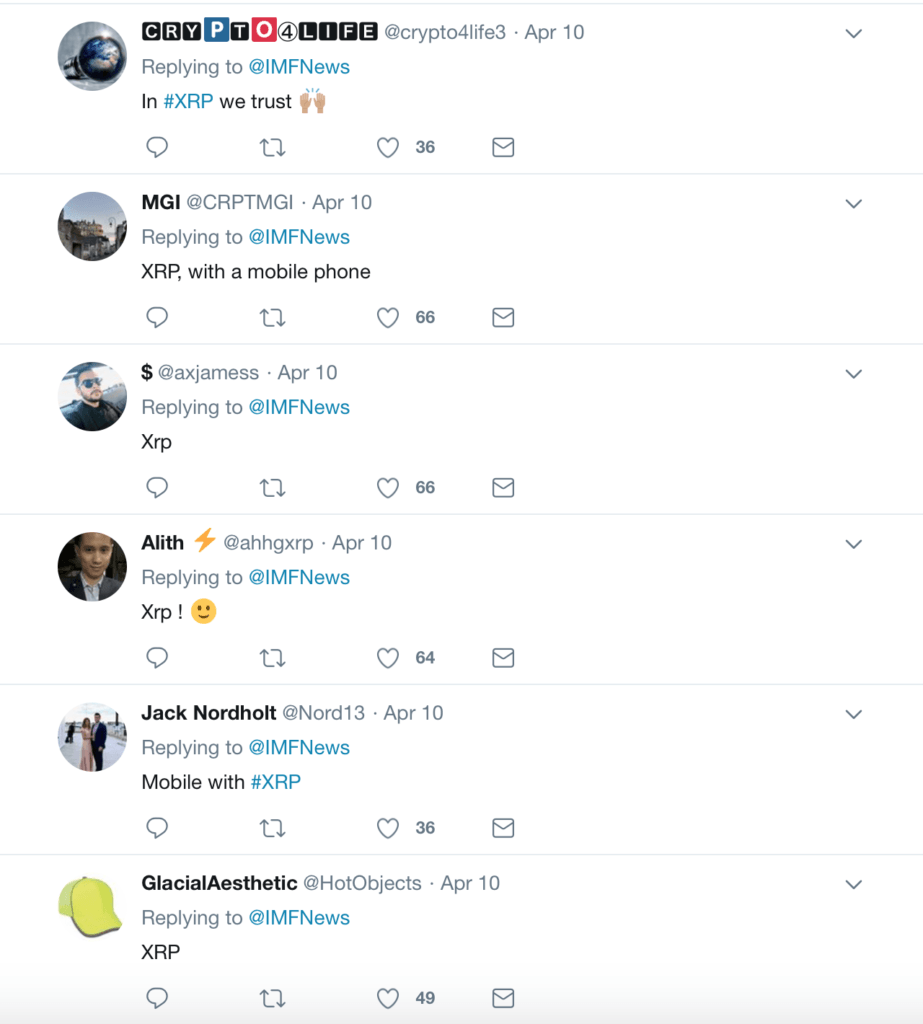Cryptocurrency Slays Cash and Cards as Lunch Money in IMF Twitter Poll

Cryptocurrencies will be the most commonly used payment method for everyday transactions in five years, according to an IMF poll. | Source: Shutterstock
56% of people think we’ll be using cryptocurrency to pay for lunch in five years, according to a Twitter poll by the International Monetary Fund (IMF).
While Twitter polls aren’t exactly scientific, they’re a fair gauge of public opinion, especially when conducted by a reputable institutional like the IMF. With 37,660 votes, there’s a clear demand for a future built on mainstream crypto payments.
It comes as the IMF adopts an increasingly open approach to digital currencies. The global financial authority recently announced a test blockchain for staff members to experiment with cryptocurrency tech.
Crypto beats cash and mobile payments
In the Twitter poll, the IMF asked users: “How do you think you’ll be paying for lunch in 5 years?”
Cryptocurrency was the clear leader with 56 percent (21,089 votes), beating mobile phone (27 percent) and bank card (9 percent). It suggests that demand for cryptocurrencies is way beyond the existing banking infrastructure.
We should point, however, that Twitter polls are easily manipulated. One glance at the 1,000+ comments, and we can see the XRP army is out in force. A targeted campaign by Ripple’s XRP supporters may therefore have positively influenced the results.

IMF launches “Learning Coin” for internal crypto experiments
The poll is one of many crypto-friendly initiatives at the IMF in recent months. The financial organization recently launched a “Learning Coin” in partnership with the World Bank.
Learning Coin will exist on a private, permissioned blockchain only accessible to those at the IMF and World Bank. It’s designed for staff members to experiment with digital ledger technology and better understand its applications.
It’s an open-minded initiative and the IMF should be applauded for embracing the technology. Especially when that technology threatens to radically change the entire financial system. An IMF statement explains:
“The development of crypto-assets and distributed ledger technology is evolving rapidly, as is the amount of information (both neutral and vested) surrounding it. This is forcing central banks, regulators and financial institutions to recognize a growing knowledge gap between the legislators, policymakers, economists and the technology. This project begins to bridge that gap and form a strong knowledge base of the technology among IMF and World Bank staff.”
IMF boss: cryptocurrencies are “shaking the system”
Christine Lagarde, managing director at the IMF, recently acknowledged that crypto is “shaking the system ” and may even threaten existing institutions.
However, the IMF is prepared be a part of the discussion. In a recent debate, the IMF asked: “Should central banks issue digital currencies?”
It’s a huge, positive change in the narrative of cryptocurrencies like bitcoin. The world’s biggest financial organizations are realizing they’ll be quickly left behind if they don’t adapt.